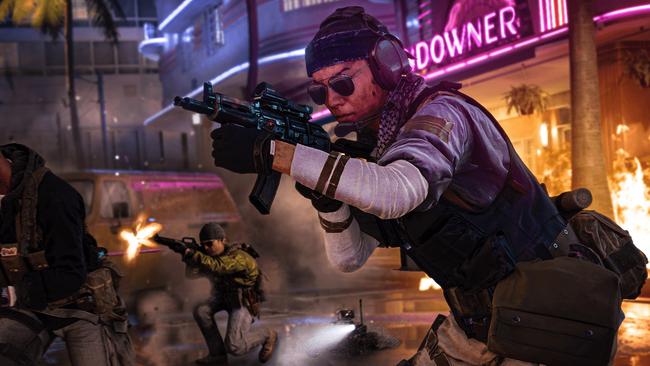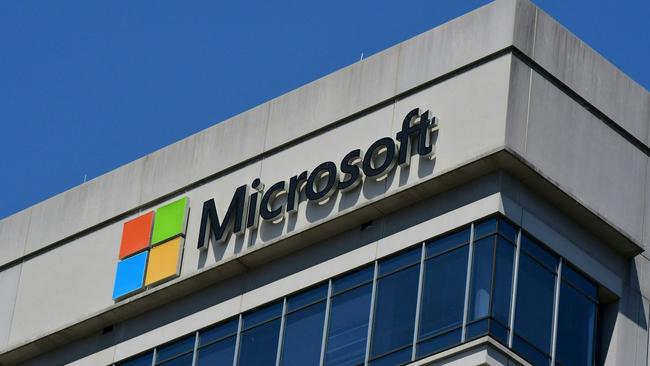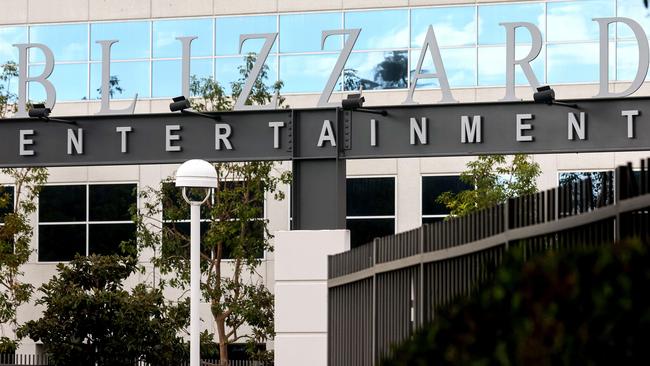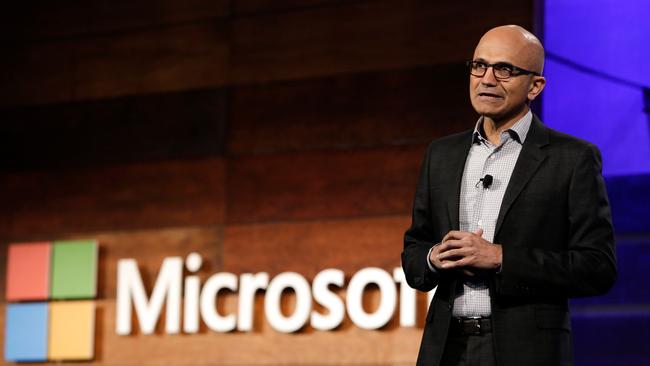Call of Duty: Microsoft’s real battle is against Apple and Facebook
The tech giant has made an all-in bet on the future control of the internet and this time it doesn’t want to get left behind.

Business
Don't miss out on the headlines from Business. Followed categories will be added to My News.
Tech giant Microsoft has made an all-in bet on the future control of the internet and this time it doesn’t want to get left behind.
A $US68.7bn ($95.5bn) all-cash move on Activision Blizzard, the gaming major behind titles such as Call of Duty, Candy Crush and World of Warcraft, is shaping up as more than a land grab for content, it’s designed to muscle out its arch rivals Apple, Google and Facebook in the distribution game.
What many of us used to call virtual reality is evolving into the metaverse – a totally immersive online experience. There’s big dollars at the end of this tech rainbow, but no one, including Facebook’s Mark Zuckerberg, is sure how to make them yet or what it will look like.

Microsoft has a bit more of a real-world use for it in the battlefield of tech.
The gaming experience is immersive and titles like shoot ’em up game Call of Duty relies on multiple players – or communities – anywhere in the world. This makes it ideal for when the metaverse eventually arrives.
In the not too distant future games will be streamed through mobile devices and the right hardware including virtual reality headsets and gloves. There is still some way to go. The hardware and devices are still expensive and can’t be worn for a long period of time, while the experience is still very developmental.
But Microsoft, which is the world’s fifth most profitable company, is not paying a 45 per cent premium for Activision’s shares for mere blue sky, it’s got a hard gaming business model in mind where it will own the data and distribution.
The scale of the deal is significant given it ranks as Microsoft’s biggest-ever acquisition, surpassing the $US26bn buyout of LinkedIn in 2016.
Following the deal Microsoft will be the world’s number three gaming company by revenue, behind China’s Tencent and Japan’s Sony.

Activision Blizzard has nearly 400 million monthly active players across the world and the hope is to build this out into recurring revenue streams and move them on to Microsoft’s Game Pass store, which has more than 25 million subscribers.
Sony’s shares fell 10 per cent in Tokyo on Wednesday with the prospect of a very big gorilla playing even more aggressively in its space. Tencent’s Nasdaq-listed shares were off 5 per cent.
Gaming is the largest and fastest-growing category in the entertainment industry. And with lockdowns around the world and more people staying at home over the past two years, growth has been turbocharged. The industry is expected to grow to 4.5 billion consumers by the end of this decade, up from 3 billion today.
Microsoft’s move expands its library for its two decades old Xbox console, adding to titles including Minecraft, Halo and the recently acquired Fallout and Doom but it is the additional reach in mobile – the single largest segment in gaming – where it sees opportunity.
Gaming remains an intensely fought contest and is littered with expensive titles that didn’t make it. Like Hollywood it has relied on rebooting the big hits. It’s worth noting games such as Minecraft are more than a decade old. Call of Duty and Warcraft are pushing 20 years old while Doom is positively middle aged and is about to hit 30 years old. All have years of longevity left by moving into the mobile and metaverse-style experience.
For his part, Microsoft chief executive Satya Nadella also has a firm eye on the dollars with controlling the distribution.
Even though Microsoft itself is one of the largest companies in the world, it too feels the pinch from Apple’s App Store and Google Play Store that dominate the distribution for mobile gaming. Nadella concedes companies such as these make more money from distribution than Microsoft does from its share of selling game titles. In the future of the internet he wants to change the script.

Speaking to analysts early Wednesday, Nadella said he wants “more innovation and investment in content creation and fewer constraints on distribution”.
“But too much friction still exists today between content, consumption and commerce.
We need to make it easier for people to connect and play great games, wherever, whenever and however they want.
“Removing these barriers will only become more important as the digital and physical worlds come together and the metaverse platforms develops.”
He also sought to define the metaverse saying he believes “there won’t be a single, centralised metaverse and there shouldn’t be”.
Microsoft’s games will need to support “many metaverse platforms”, which can support content, commerce and applications.
“In gaming, we see the metaverse as a collection of communities and individual identities anchored in strong content franchises, accessible on every device.”
Matt Forman, the founder and CEO of ASX-listed marketing technology group XPON, said there was still significant development needed for the metaverse but ultimately it will evolve as a battle for data.
“The metaverse isn’t one thing, it’s lots of different things. And right now, the barriers are predominantly hardware because to participate fully, and immersively in this new world, that’s being created, needs headsets and VR goggles,” Forman tells The Australian.
“What we’re seeing is a number of these different tech companies like Facebook and Microsoft are building out their own worlds.
“But they’ll be a proprietary world – you’ll still be watching Facebook, it’ll just be in VR (virtual reality), and Facebook will still hold all that data.”

Microsoft’s new gaming vision is also grounded in a strong dose of opportunity.
Activision’s shares have fallen nearly 30 per cent over the past six months with the gaming company battling complaints about a toxic internal culture and a lawsuit alleging widespread sexual harassment.
These soon will become Microsoft’s problems to fix. Nadella noted after the deal closes he will have significant work to do. He also has a balancing act to ensure the mature Redmond, Washington-based Microsoft doesn’t stifle the LA-based Activision’s more creative tendencies.
“As CEO of Microsoft, the culture of our organisation is my number one priority,” Nadella told the analyst briefing.
“This means, we must continuously improve the lived experience of our employees and create an environment that allows us to constantly drive every day improvement in our culture”.
More Coverage
Originally published as Call of Duty: Microsoft’s real battle is against Apple and Facebook





